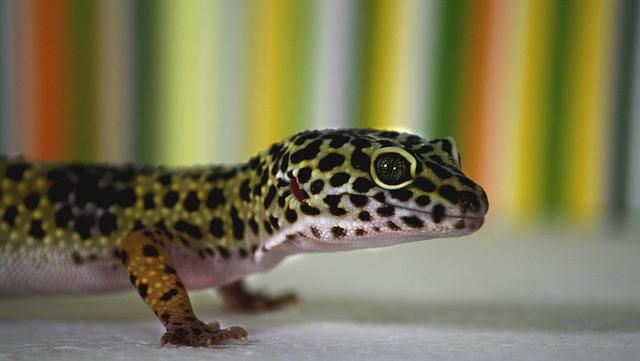Fat-tailed geckos are a subspecies of common geckos that have a unique characteristic: their tails, and in some cases body, are significantly fatter than other known species of geckos. The fat-tailed gecko has a tail that is so large it takes up nearly half of its body length.
Hence, the fat-tailed gecko gets its name from these enlarged tails. These beautiful creatures are found in the wild only in select locations throughout Central Africa. Because they’re not as common as other types of geckos, many people still don’t know much about them.
It’s for this reason we have put together this helpful guide to the lifespan of a fat-tailed gecko.
How Long Does a Fat-Tailed Gecko Live?
When researching the lifespan of a fat-tailed gecko, one of the first things we found is that there is no concrete evidence of their lifespans.
This is because they are a relatively new species, and the majority of the research done on them has been in the last few years.
As the years progress and more research are conducted, we should have a better understanding of their lifespans. For now, we can only make educated guesses about their lifespans.
Based on what we know about their relatives, the fat-tailed gecko has a lifespan of around 8 to 10 years.
While this is significantly lower than the common house gecko, which has a lifespan of 10 to 20 years, it’s still a rather long lifespan.
As with many things, the fat-tailed gecko’s lifespan will vary based on its diet, living conditions, genetics, and care.
What Are the Causes of Death for Fat-Tailed Geckos?
While there isn’t a lot of information out there about the causes of death for fat-tailed geckos, we can assume it’s similar to other geckos.
The most common causes of death for common house geckos are respiratory infections, parasites, and nutritional deficiency.
These will also affect fat-tailed geckos, so monitor your gecko’s health closely. If you notice any of these symptoms, take your gecko to a veterinarian as soon as possible to prevent death.
Fat-tailed geckos are also particularly prone to metabolic bone diseases. This is caused by a lack of calcium in their diet, so make sure you are providing them with high calcium foods and supplements.
Fat-tailed geckos are susceptible to the same predators as common house geckos. This includes things like spiders, birds, and lizards. They’re also very susceptible to diseases like salmonella, so you’ll want to be careful when handling them.
The lifespan of Fat Tail Geckos in Captivity
As we mentioned above, fat-tailed geckos have a relatively short lifespan in captivity compared to other gecko species.
Because they are a newly discovered species, there is a lack of information on their lifespan in captivity.
However, we can make educated guesses based on their relatives.
Fat-tailed geckos in captivity have a lifespan of around 5 to 7 years.
This is fairly standard and is similar to that of the common house gecko. Fat-tailed geckos kept in captivity are fed high-quality foods and live in clean, safe environments.
Therefore, their lifespans should be significantly longer than that of wild, feral fat-tailed geckos.
The lifespan of Fat Tailed Geckos in the Wild
As we mentioned above, the lifespan of a fat-tailed gecko in the wild is much shorter than its lifespan in captivity. This is because fat-tailed geckos in the wild don’t have the same access to proper food, and are exposed to more diseases.
Fat-tailed geckos in the wild have a lifespan of around 3 to 4 years. This is significantly shorter than their lifespan in captivity but is also to be expected.
Fat-tailed geckos in the wild are a relatively new species. As such, they aren’t as abundant and widespread as other geckos, such as the common house gecko.
Fat-tailed geckos in the wild are also much less likely to be fed a high-quality diet due to their lack of accessibility to proper food sources.
Summing up
Fat-tailed geckos are a relatively new species and are not as abundant as other geckos. As such, it’s difficult to find concrete data about their lifespans, but we can make some educated guesses based on their relatives. Fat-tailed geckos in captivity have a lifespan of around 5 to 7 years, while fat-tailed geckos in the wild have a lifespan of around 3 to 4 years. These are average lifespans for the fat-tailed gecko.




